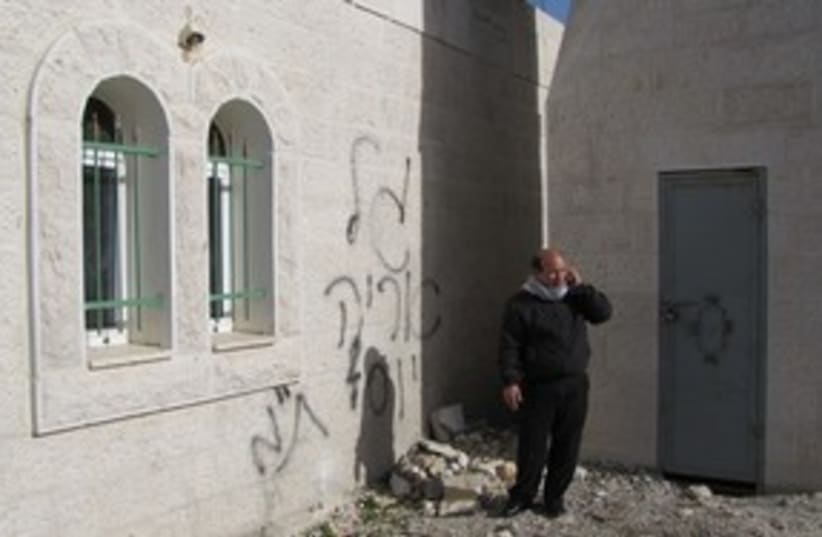Jerusalem Post staff, Tovah Lazaroff and Melanie Lidman contributed to this report.
Vandals deface mosque, spray 'price tag' graffiti
Perpetrators torch 3 cars in W. Bank village; spray "price tag Gal Yosef"; attack follows dismantling of illegal outpost near Shiloh.

Jerusalem Post staff, Tovah Lazaroff and Melanie Lidman contributed to this report.